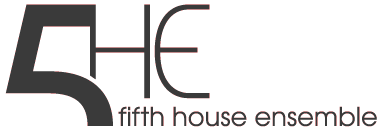A World of Magical iThings - Weekly Inspiration from Melissa
 Months ago when we planned our performance at the Apple Store, we had no idea it was going to happen within a week of the passing of Steve Jobs. Clearly, much has been said about him and his legacy in recent days, a few in particular that made me think about how we do things here at 5HE.
Months ago when we planned our performance at the Apple Store, we had no idea it was going to happen within a week of the passing of Steve Jobs. Clearly, much has been said about him and his legacy in recent days, a few in particular that made me think about how we do things here at 5HE.
First, I've heard from engineers that work at Apple that it can be a bit of an unusual process. Due to the intense secrecy around new products, these folks sometimes know what they're supposed to create, but have no idea what product it's actually for. Ok, that one doesn't have a parallel at 5HE, but I thought it was interesting. Also, instead of starting with what makes sense from a technical perspective and trying to make it as attractive as possible afterwards, they are often handed specs for new products and parts that start with customer-centric design. As in, make a part that does THIS, but it's gotta fit in this liiittle space because we came up with this sexy new design that folks are gonna love.
On the eve of our yearly Dreamlist meeting here at 5HE, that makes me think of our own programming process. We always start with music we want to play before we die (called the Dreamlist), but after that, our program design starts with what we know our audiences are interested in. This helps us choose our venues, collaborators, story ideas, sponsors, and everything else that goes into experience design.
What does that mean for our musicians? It means doing things that are NOT EASY, like running back and forth between a Carter Sonata and the Beethoven Septet without tuning in between. Or, sitting in the wings with a reed instrument for 15 minutes, then plopping down after a light cue to play the hardest solo in the world.
The first time we did a show like this (for those of you who have been with us long enough to remember the Commedia series), we almost had mutiny in the ranks. We thought it would be impossible, that we wouldn't be comfortable using costuming/props/pyrotechnics, and that we'd get rotten veggies thrown at us for mixing up movements of works.
And then a funny thing happened. After the show, we had school teachers, CSO board members, kids, and everyone in between with zero to expert exposure to classical music telling us how much they loved the format. Many said they connected for the first time instead of taking a paid nap, and that the narrative elements kept them engaged for the entire show. Folks told us that even though they'd heard Beethoven a million times, they experienced it in a new way.
So we kept pushing the envelope, and every year we do things that make a few of us say NOOOoooOOOOOoooOOOO at first in the hopes of bringing a bit of magic to our audiences.
Speaking of magic, check out this video from composer Jason Charney, who joined us for last Tuesday's performance at the Apple Store. We were introduced to his piece last summer, which was written for the iPhone, during which Adam and I looked at each other and said "WE WANT THAT."
http://www.youtube.com/watch?v=Yf5uEw01EKg&feature=channel_video_title
And, in this week's Vblog post for Polyphonic.org, I talk about 5HE's use of iPads in rehearsals and performances as a music reader. If you'd like to geek out with us, watch away.
http://www.youtube.com/watch?v=h4BuPyjFs_s
Finally, I just want to share my favorite press quote about Steve Jobs which comes courtesy of this article in Time Magazine. It's probably the best thing any leader could hope for.
"Jobs was so obviously fundamental to Apple's success that many feared the company's amazing run would end the moment he was no longer calling every shot. Instead, Apple prospered during the period of his illnesses and absences. By 2011, the vast majority of its revenues came from products that hadn't existed when Jobs took his first medical leave. He had accomplished one of his most astounding feats: Teaching an entire company to think like Steve Jobs."
